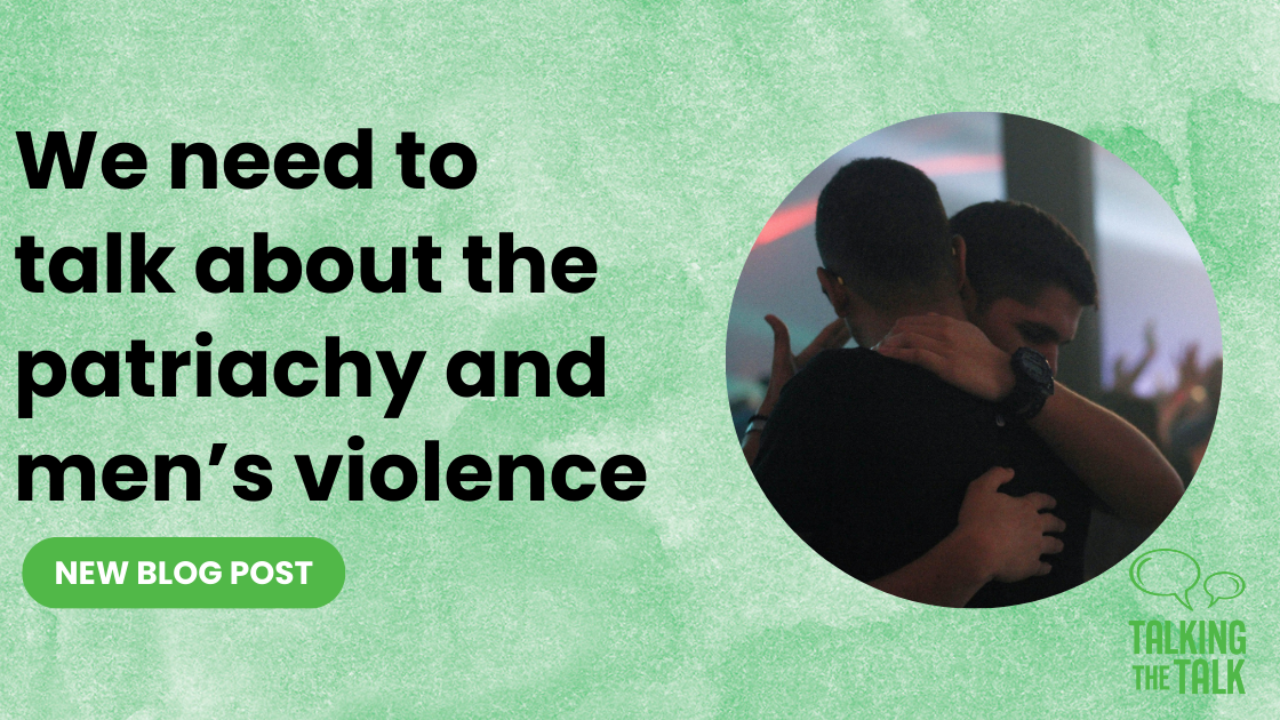We need to talk about the patriarchy and men’s violence
Nov 20, 2023
Yesterday was International Men’s Day, a perfect time to talk about the patriarchy and the harms it contributes to.
“On November 19, International Men’s Day celebrates worldwide the positive value men bring to the world, their families and communities. We highlight positive role models and raise awareness of men’s well-being. Our theme for 2023 is “Zero Male Suicide”. Together we can stop male suicide.”
8.6 Australians die every day by suicide. 75% of those who take their own life are male (ABS, 2022). https://www.lifeline.org.au/resources/data-and-statistics/
We live in a patriarchal society, where systems structure gender inequality between men and women, including relationships, beliefs, and values reflected in political, social, and economic systems. Where positions of dominance and privilege are predominantly held by men, where attributes seen as ‘feminine’ or pertaining to women are undervalued, while attributes regarded as ‘masculine’ or pertaining to men are privileged.
In this system of structures males are:
- Socialised to display/perform toxic masculinity traits such as dominance and aggression
- Encouraged to justify using control, violence and force to get their needs met
- Not allowed to ‘feel’ or ‘express’ all their emotions
- Led to believe they can’t express feelings and emotions, especially sensitive ones
- Prevented from learning how to have emotional needs met
- Disconnected from emotions and seeking help is seen as weak
- Encouraged to believe in rigid gender stereotypes
- Told to believe that men have power over women i.e. decision making and sexual dominance
- Led to fear expressing anything that is weak, soft, nurturing, caring
- Told to confirm to a script of a type of masculinity that says they must compete with each other, to prove their manhood, and deny being/feeling human
Enforcing these patterns of behaviour has failed men, and this culture of toxic masculinities contributes to men’s violence. Patriarchy harms everyone, it is a form of cultural violence. It is not always physical or obvious, but it is especially harmful to men’s health, wellbeing and relationhips.
“Patriarchy is about men – about male privilege, about men’s practices and relations, with women and perhaps more so with other men.” Michael Flood
https://xyonline.net/content/whats-role-men-ending-patriarchy
‘Masculinity’ or perhaps more accurately ‘masculinities’ refers to traits or qualities that are stereotypically regarded as characteristics of men or boys being male. It’s important to note that toxic masculinity is different to masculinity, and being masculine isn’t toxic.
However, some stereotypically masculine characteristics are toxic and harmful, such as dominance, violence, sexual entitlement, lack of emotional regulation and hostility towards femininity. Masculinity is not something that is synonymous with harmful behaviour. The harmfulness is when traditional ideas of masculinity become toxic.
Whether through the media, pornography or movies/TV shows, young people are fed messages through their adolescence and teen years such as:
- Men are entitled to sex
- Men have an uncontrollable sex drive
- Women are objects
This messaging is dangerous, as it sets the foundation and normalises men’s violence against women. A recent Australian Government report estimated that one in five women (18%) and one in 20 men (4.7%) had experienced sexual assault or sexual threat since the age of 15.
According to Our Watch:
- Violence against women is overwhelmingly perpetrated by men
- On average one woman is killed every week by a partner or former partner
- Women are sexually assaulted at a rate almost seven times higher than men
A common refrain I see online is “It’s not all men.” Of course it isn’t; however, we all need to criticise the sexism and violence that some men perpetuate, often multiple times and against multiple victims. Even one violent male committing sexual assault is one too many. We all need to do something about it.
This article from the Sydney Morning Herald suggests that “Australia needs to view violence against women as a problem for male perpetrators, not the victims, if it is to make progress in stopping the scourge … It’s a new guide for policymakers to flip the emphasis away from ‘response and women, to prevention and men’ and calls for systemic change rather than just individual action. ”
It is so important that change starts from the top down, so that we can address underlying gender inequalities. However, we can’t wait for the Government to act on this.
Parents and carers, not only are you shaping the lives of the young children around you everyday, but they are learning about the world around them - what they hear, see and talk about. I encourage you to counteract the harmful messaging around toxic masculinity by having open and honest conversations with them. Use teachable moments when you hear a sexist ad on the radio or watch a movie character fail to ask for consent.
How can you talk to your children about toxic masculinity and raise them as feminists who believe in equality for all?
- Allow them to be emotional
- Support them to healthily express emotions
- Emphasise the importance of consent, empathy, respect in all kinds of relationships
- Raise them to question societal expectations and avoid adherence to rigid gender stereotypes
- Encourage them to engage in the prevention of men’s violence against all genders
I encourage all parents to visit The Australian Government's Stop it at the Start Respect Checklist to give you an indication of what your child might believe, and how they could react to disrespectful behaviour.
Other resources on this topic:
The AFL Grand Final is not an excuse for violence

